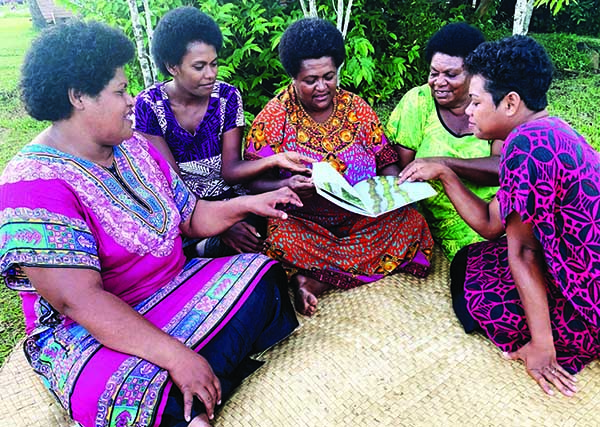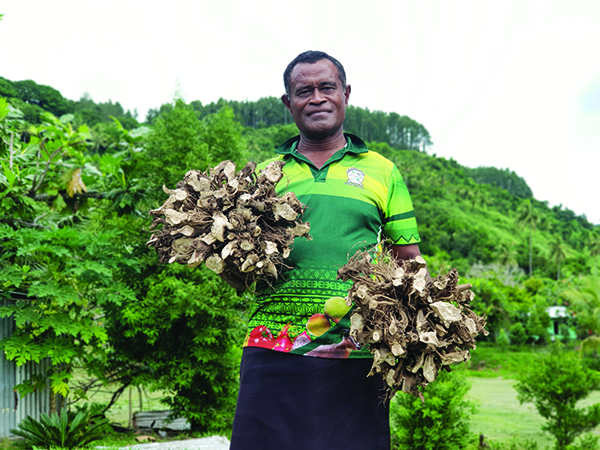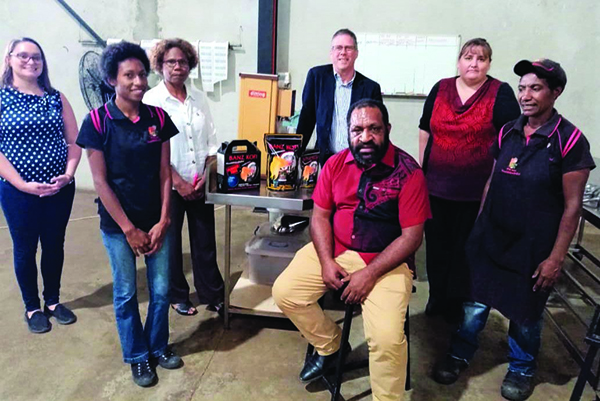Business envoy November 2021
Contents
Agriculture – seeds of growth, recovery in the Pacific
Both household and national economies in the Pacific will rely on agriculture for economic growth and recovery from the impact of the global COVID-19 pandemic.
Most Pacific Island economies are limited by having a relatively small area of arable land, their remoteness from major markets, and a reliance on a narrow range of traditional export commodities with limited diversification and value addition. These challenges mean that many Pacific businesses with export potential fail to thrive.
The Pacific Horticultural and Agricultural Market Access Plus Program (PHAMA Plus) aims to improve economic growth and rural livelihoods for Pacific peoples by working with agribusinesses and public agencies in Fiji, Papua New Guinea, Samoa, Solomon Islands, Tonga and Vanuatu to maintain and improve the trade of agricultural products.
PHAMA Plus support is practically oriented to strengthen biosecurity and Sanitary and Phytosanitary (SPS) compliance by Pacific countries to better facilitate exports.
In Samoa, PHAMA Plus has been supporting efforts to resume exports of fresh taro by piloting a hot water treatment that will enable produce to meet Australian import requirements. This will open more export opportunities for local taro exporters and commercial taro growers.
The Program has also been actively supporting Tonga to improve the quality and biosecurity compliance of watermelons for export to New Zealand.
An ongoing area of PHAMA Plus support is to assist Pacific biosecurity authorities to continuously improve their market access facilitation functions which are essential for agricultural and horticultural exports to grow. PHAMA Plus has been supporting PNG's response to African Swine Fever, Fall Army Worm and helping the other PHAMA Plus countries to improve their pest incursion preparedness. This is key to mitigating the combined socio-economic risks of animal and plant pests and diseases to Pacific livelihoods.
During 2021, PHAMA Plus extended its support under the Pacific Agreement on Closer Economic Relations (PACER) Plus agreement to three Small Island States - Cook Islands, Kiribati, and Niue. PHAMA Plus is supported by the governments of Australia and New Zealand and managed by DT Global.
Maintaining food safety in a COVID-19 world
Export markets are increasingly requiring assurances under recognised quality or risk-based management systems such as Hazard Analysis and Critical Control Points (HACCP) principles. But the process of attaining certification can prove challenging and costly for a small to medium sized export businesses, especially in the face of COVID-19 travel restrictions. Pacific businesses faced the risk of losing their HACCP certification and markets, impacting supply chains and livelihoods.
PHAMA Plus has supported a remote, technology driven HACCP audit system to enable Pacific export companies to maintain their accreditation in the challenging COVID-19 operating environment. Through its partnership with HACCP Australia, an Australian-based food safety service provider, progress has been strong with more than 75 per cent of previously accredited businesses participating in the remote audit process.
In 2020 alone, 28 companies across six Pacific nations were able to maintain HACCP certification under this program. Remote audit has proved to be a viable and scalable option for businesses' certification of food safety management systems. The support has now expanded to new companies to undergo a remote audit for first-time HACCP certification, helping Pacific businesses gain access to new international markets.
In Fiji and Solomon Islands, remote audit re-certification helped 6 companies prevent total business losses worth $4.1 million from the potential loss of certification. Furthermore, three companies reported that they were able to expand their markets and exported additional $235,000 worth of goods to new markets.
The reaccreditation allows our products to still have access to main export markets and our dynamic customer base maintained. Now more now than ever, people want traceability, they need to know a product is safe, hygienic, fresh and meets a high standard
Patrick Killoran
owner of Papua New Guinea based coffee company, Banz Kofi.
The remote auditing system is now a cost-saving certification option for most exporters and being one of the unanticipated opportunities arising out of COVID-19.



